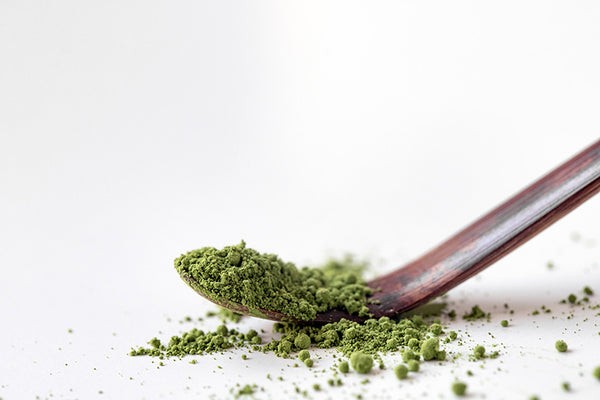Matcha lattes have exploded in popularity as a vibrant and healthy alternative to coffee. But if you’re watching your caffeine intake, you might be wondering: how much caffeine is in a matcha latte? The answer isn’t always straightforward, and depends on several factors.
Let’s dive into the caffeinated world of matcha, explore its unique properties, and compare it to other caffeinated beverages like coffee. We’ll uncover everything you need to know to make informed choices about your daily matcha latte.
Caffeine: A Quick Overview
Caffeine is a naturally occurring stimulant found in various plants, including tea leaves and coffee beans. It’s widely consumed for its ability to increase alertness, improve focus, and boost energy levels. While caffeine offers benefits, excessive consumption can lead to unwanted side effects like jitters, anxiety, and sleep disturbances.
Matcha vs. Coffee: Caffeine Content and Effects
While both matcha and coffee contain caffeine, their effects on the body can differ significantly. This difference stems from the unique composition of matcha.
Caffeine Content Comparison
Generally, a cup of coffee (8oz) contains between 95-200mg of caffeine. A standard serving (1-2 teaspoons or 2-4 grams) of matcha contains around 40-80mg of caffeine.
So why does matcha feel different despite sometimes having a comparable caffeine level to coffee?
The L-Theanine Advantage
Matcha contains a unique amino acid called L-theanine. L-theanine promotes relaxation and reduces stress. It works synergistically with caffeine to provide a sustained and focused energy boost without the jitters or crash often associated with coffee. This combination of caffeine and L-theanine is what sets matcha apart.
 Matcha Powder and Whisk
Matcha Powder and Whisk
Image showing matcha powder and whisk. The alt text emphasizes the key ingredients and tools used in preparing matcha, hinting at its unique properties and preparation method.
Decoding Caffeine Levels in Matcha
It’s important to note that caffeine levels in matcha can fluctuate depending on various factors:
- Matcha Grade: Ceremonial grade matcha, made from the youngest tea leaves, generally contains slightly more caffeine than culinary grade.
- Amount Used: The more matcha powder you use, the higher the caffeine content. A typical latte uses 2-3 grams of matcha powder.
- Preparation Method: Unlike tea bags that are steeped, matcha powder is fully dissolved in water, meaning you consume the entire leaf and all its components, including caffeine.
How Much Caffeine is in a Matcha Latte?
A typical matcha latte contains 60-90mg of caffeine. This amount is generally lower than a coffee latte. A coffee latte usually has one or two shots of espresso, containing over 60mg of caffeine per shot.
To control the caffeine level in your matcha latte, adjust the amount of matcha powder you use.
Factors Influencing Caffeine Content in Tea
All teas originate from the Camellia sinensis plant. Caffeine levels vary depending on:
- Tea Variety: Different tea varieties possess different caffeine levels.
- Growing Conditions: Factors like terroir and climate affect caffeine content.
- Harvesting Season: Younger leaves harvested earlier in the season tend to have higher caffeine levels.
- Processing Methods: Shading tea plants before harvest can increase both caffeine and L-theanine levels.
Is Matcha Caffeine Bad for You?
When consumed in moderation, caffeine from matcha isn’t inherently bad for you. The FDA recommends a daily caffeine intake of no more than 400mg for healthy adults. A matcha latte falls well below this threshold.
Moreover, studies suggest that moderate caffeine consumption may offer health benefits, such as reduced risk of diabetes and certain cancers. However, individuals sensitive to caffeine should monitor their intake accordingly.
Benefits of Matcha Beyond Caffeine
Matcha offers many health benefits beyond its caffeine content. It’s rich in antioxidants, particularly EGCG (epigallocatechin gallate), which has anti-inflammatory and anti-cancer properties. Matcha is also a good source of chlorophyll, which aids in detoxification.
Making the Perfect Matcha Latte
Want to learn how to make a delicious matcha latte at home? It’s easy! Simply whisk matcha powder with hot water, then add your favorite milk (dairy or non-dairy) and a touch of sweetener, if desired.
Final Thoughts on Caffeine in Matcha Lattes
Matcha lattes offer a balanced and sustained energy boost thanks to the synergistic effects of caffeine and L-theanine. Understanding the factors that influence caffeine levels allows you to customize your matcha latte to suit your individual needs and preferences. So, enjoy your matcha latte with confidence, knowing you’re making an informed choice for your well-being.
SHOP MATCHA
List of Sources:
[1] https://www.ncbi.nlm.nih.gov/pmc/articles/PMC4462044/
[2] https://www.ncbi.nlm.nih.gov/pmc/articles/PMC8228209/
[3] https://www.ncbi.nlm.nih.gov/books/NBK507027/
[4] https://www.ncbi.nlm.nih.gov/pmc/articles/PMC4490536/
[6] https://www.huhs.edu/literature/L-Theanine.pdf
[7] https://www.ncbi.nlm.nih.gov/pmc/articles/PMC3518171/
[8] https://www.fda.gov/consumers/consumer-updates/spilling-beans-how-much-caffeine-too-much
[9] https://www.ncbi.nlm.nih.gov/pmc/articles/PMC4055352/
Disclaimer:
This article is for informational purposes only and should not be considered medical advice. Consult with a healthcare professional for personalized guidance. Tea may interact with medications or supplements.